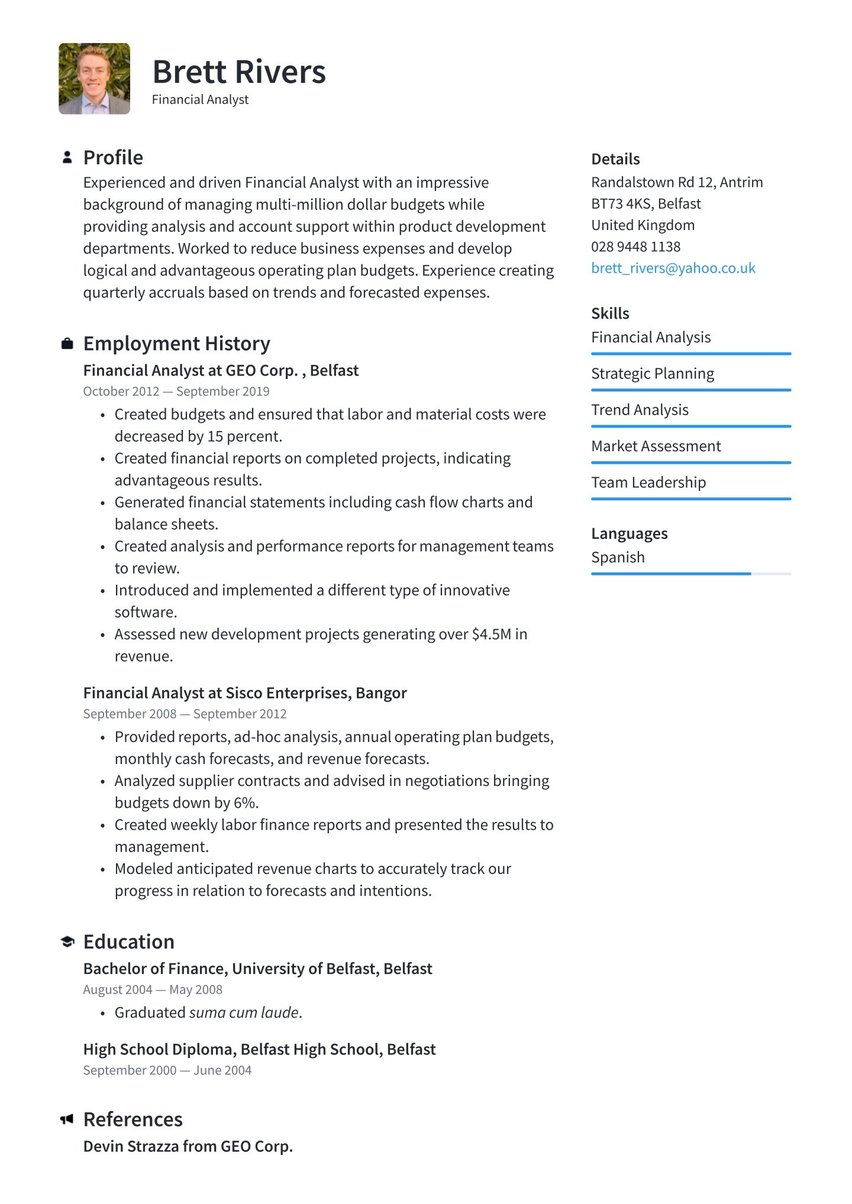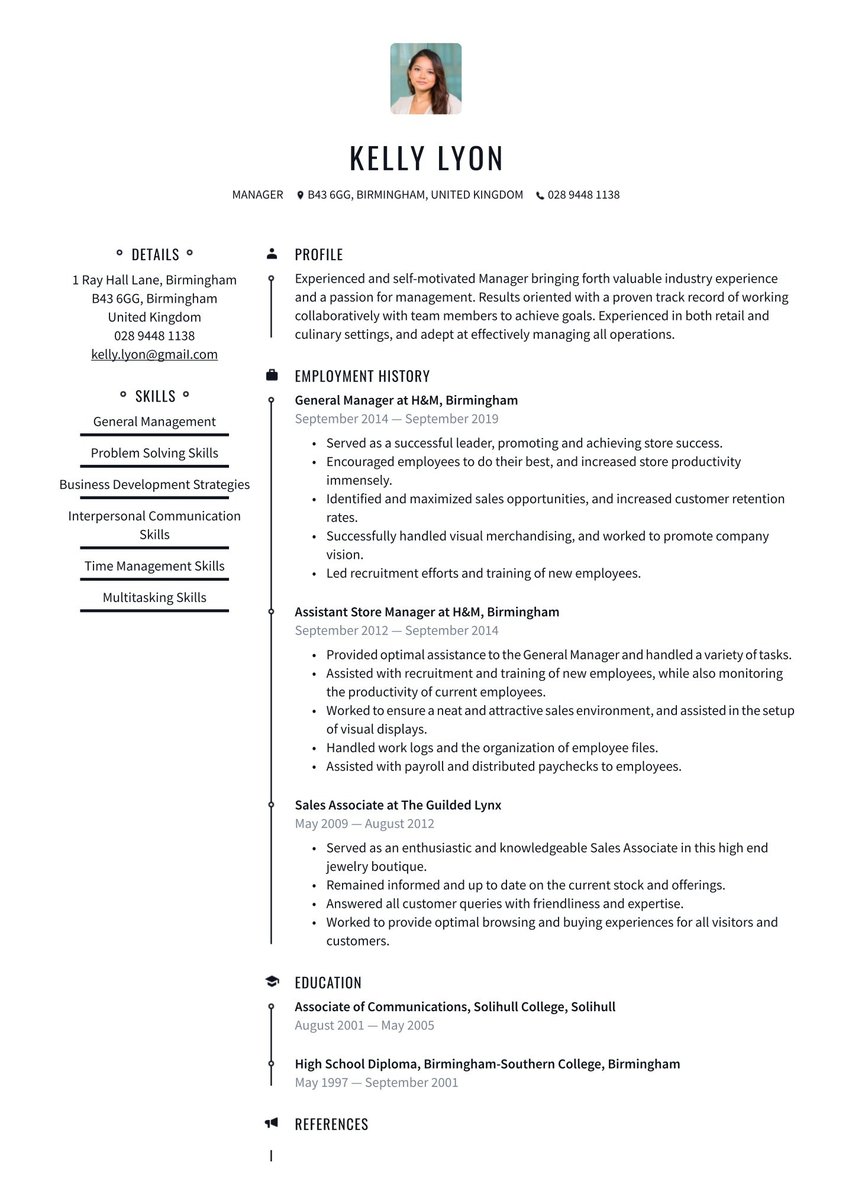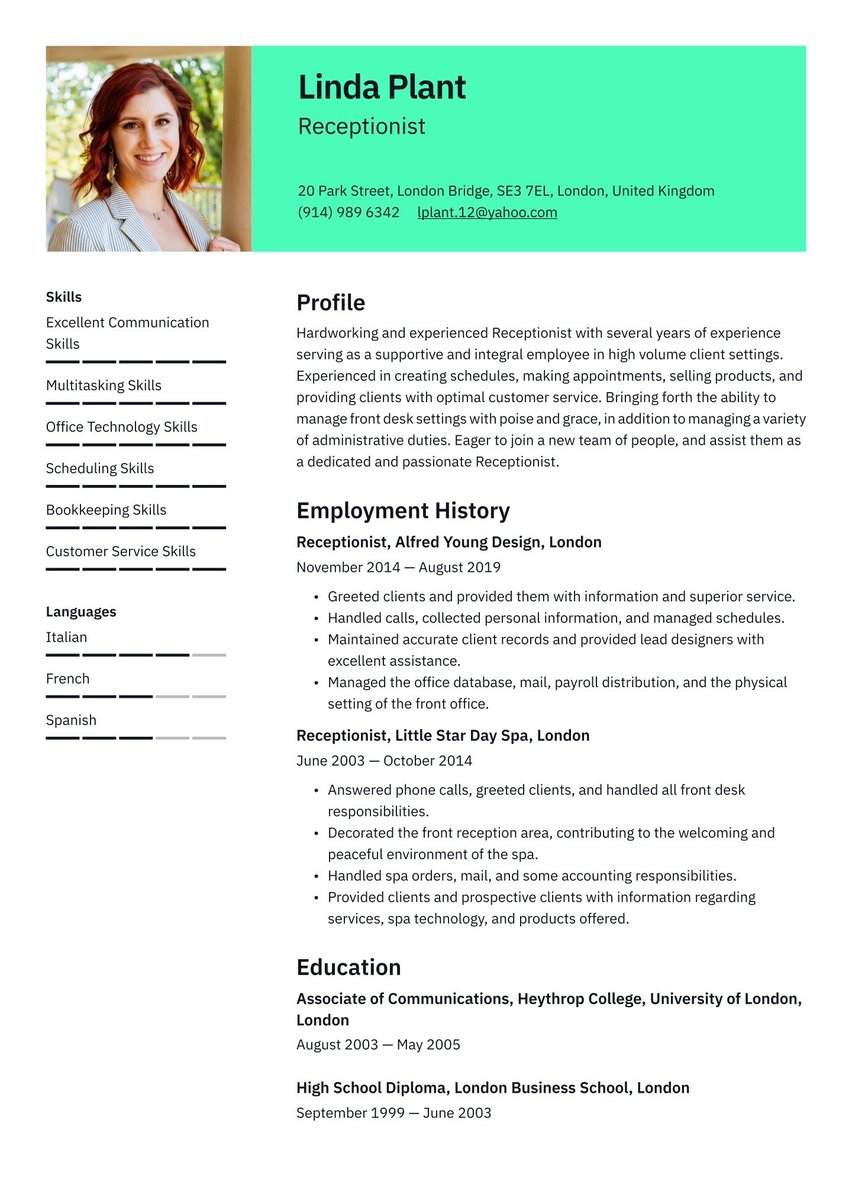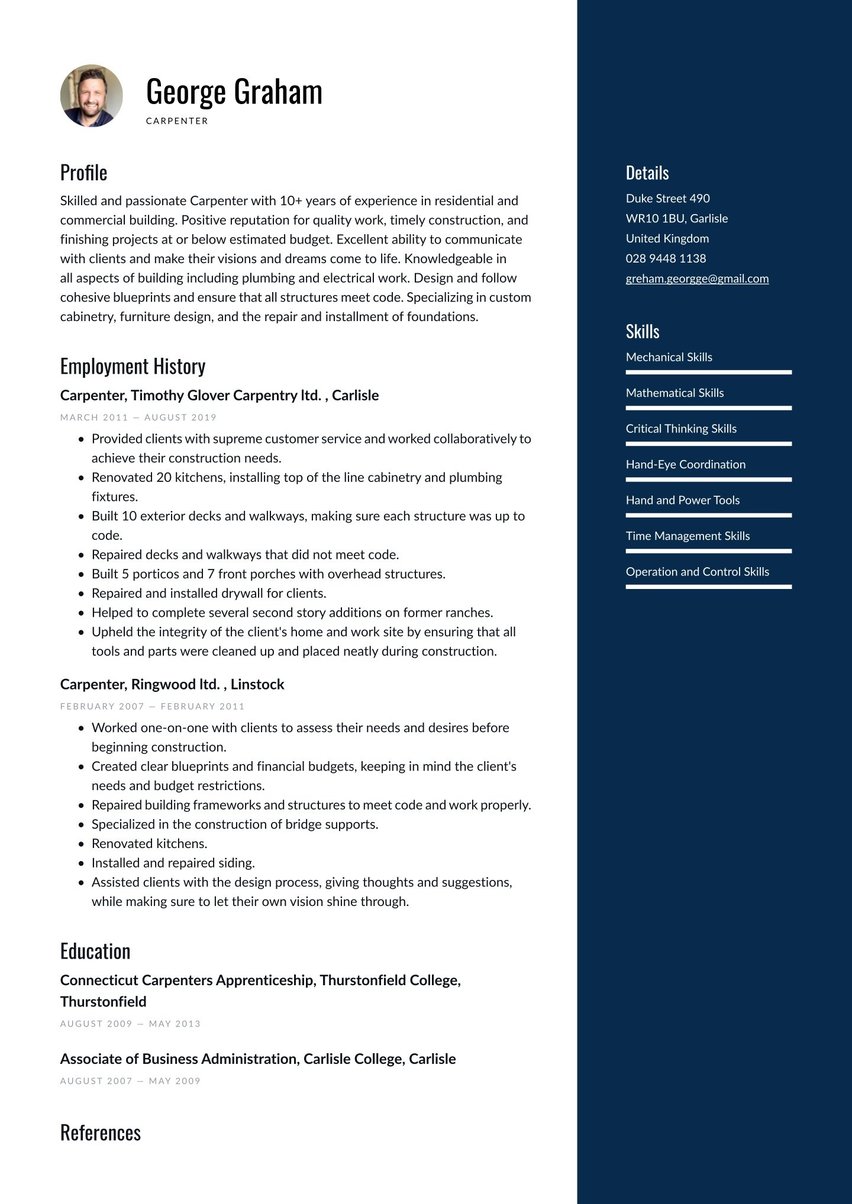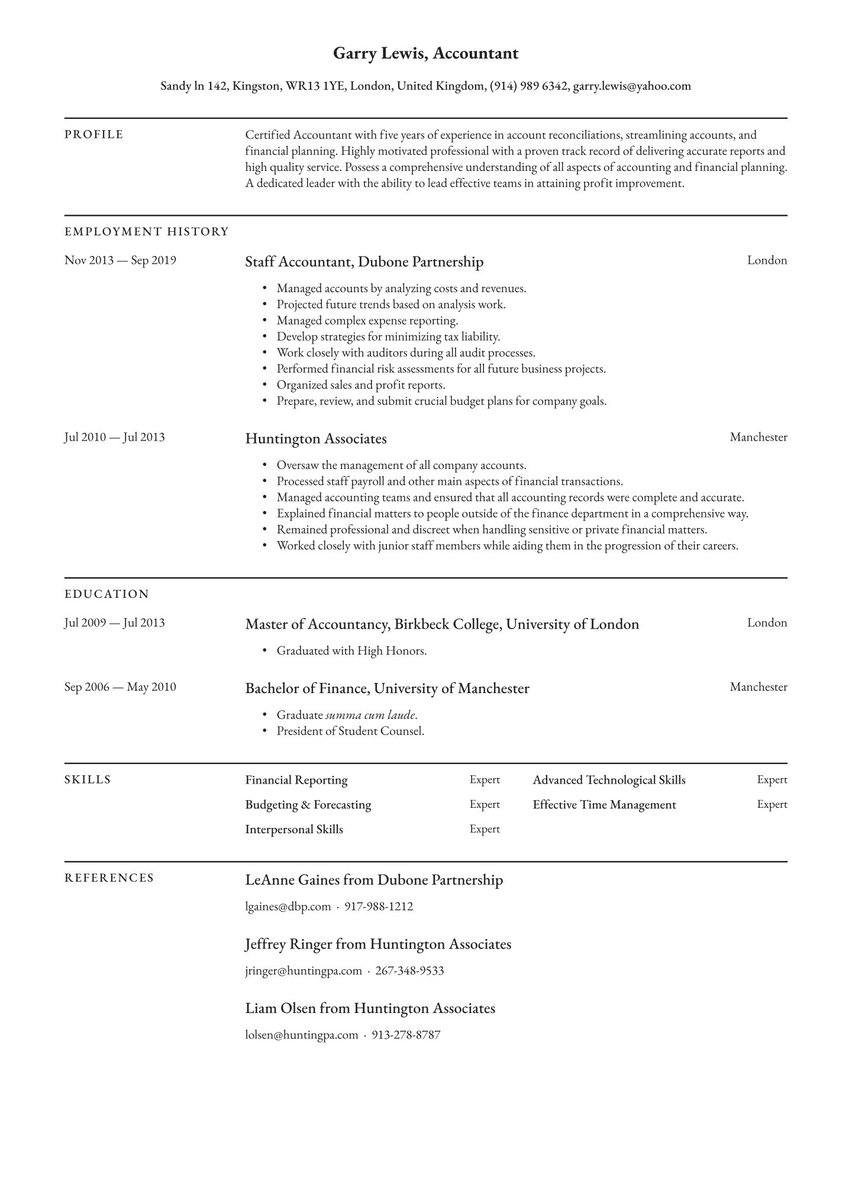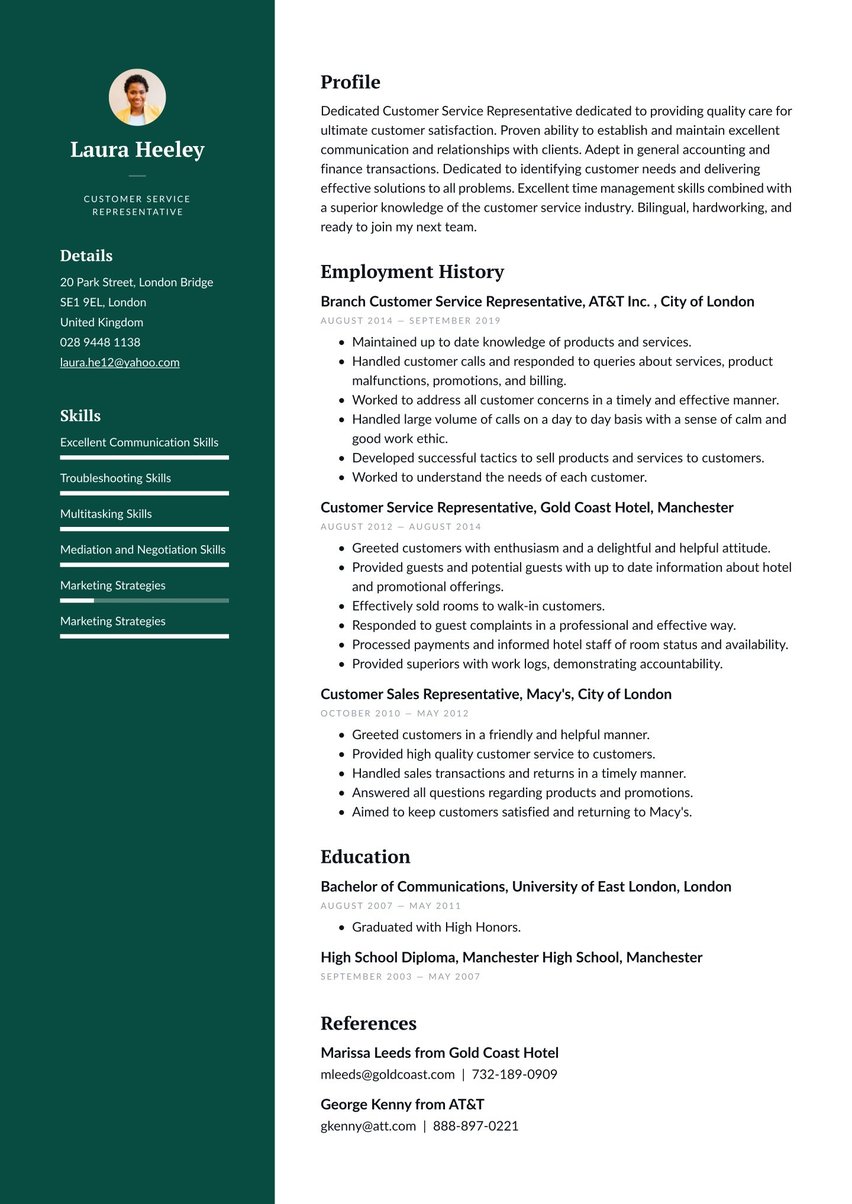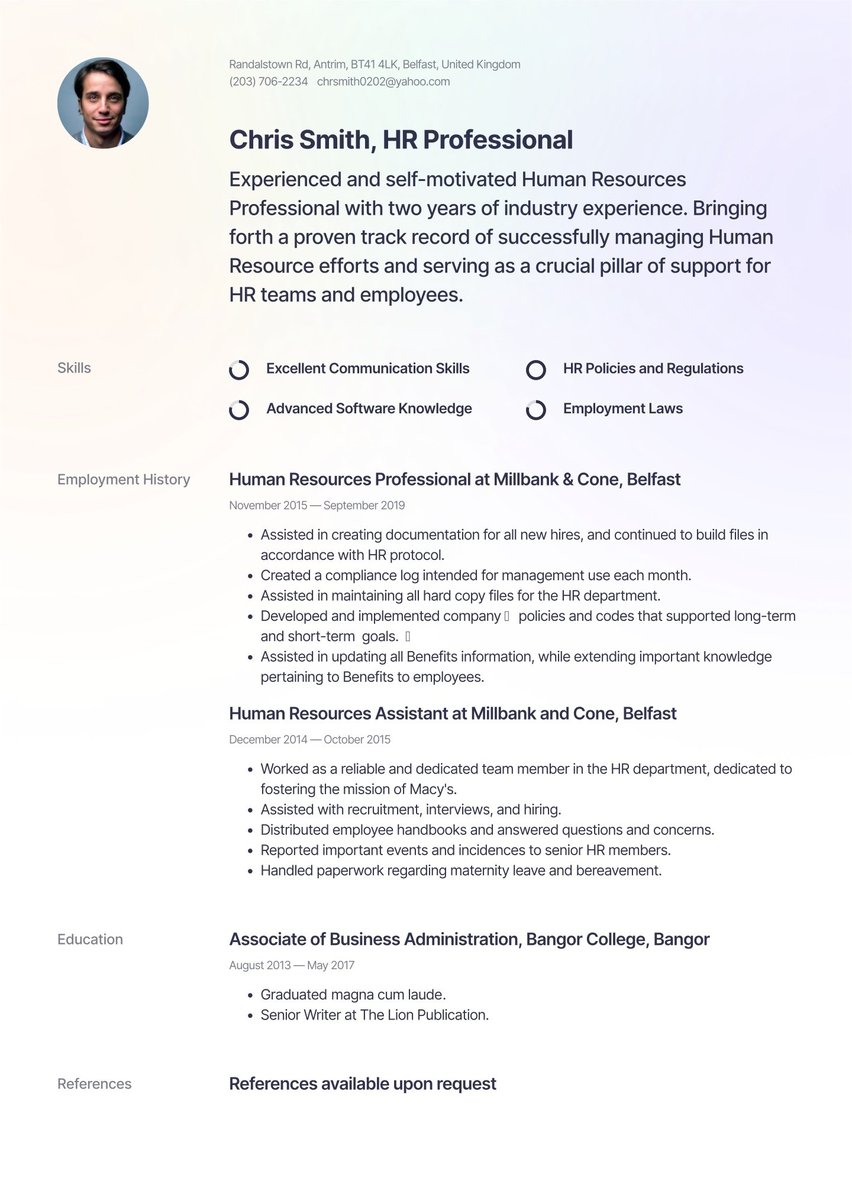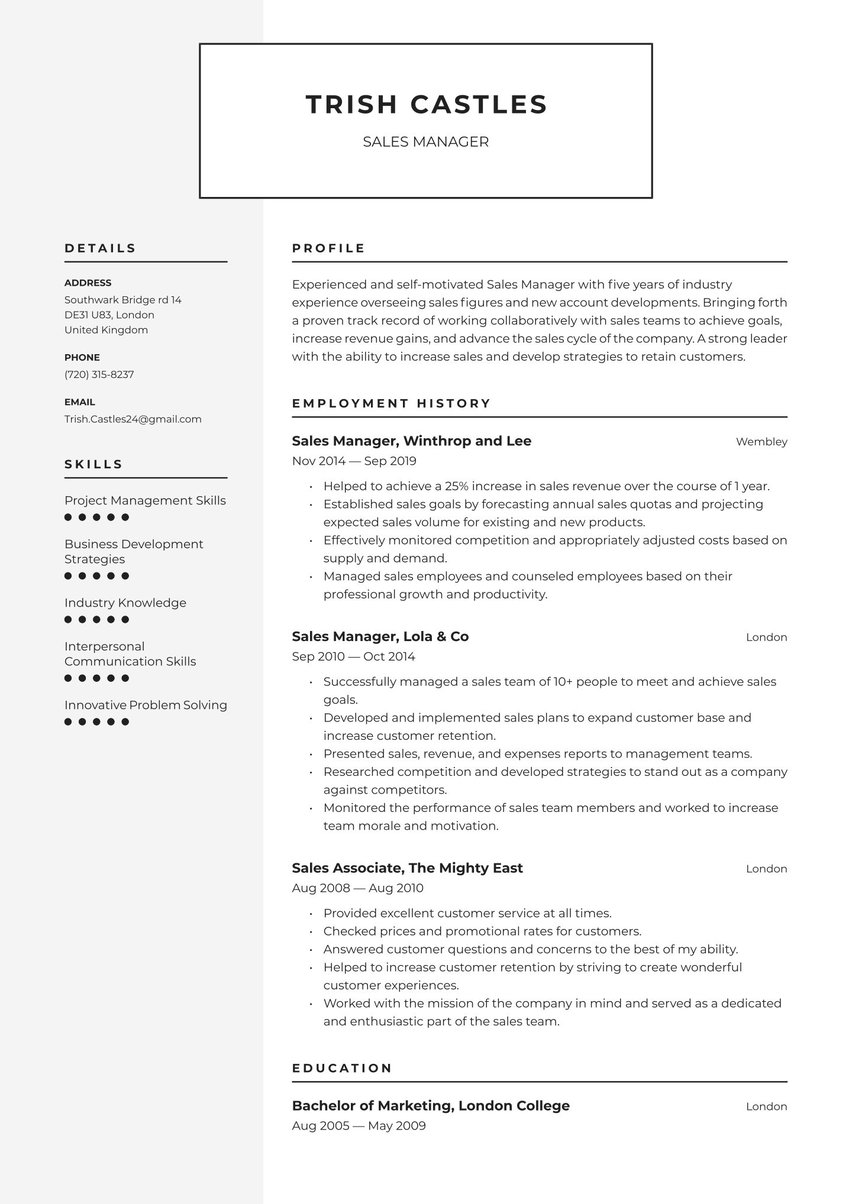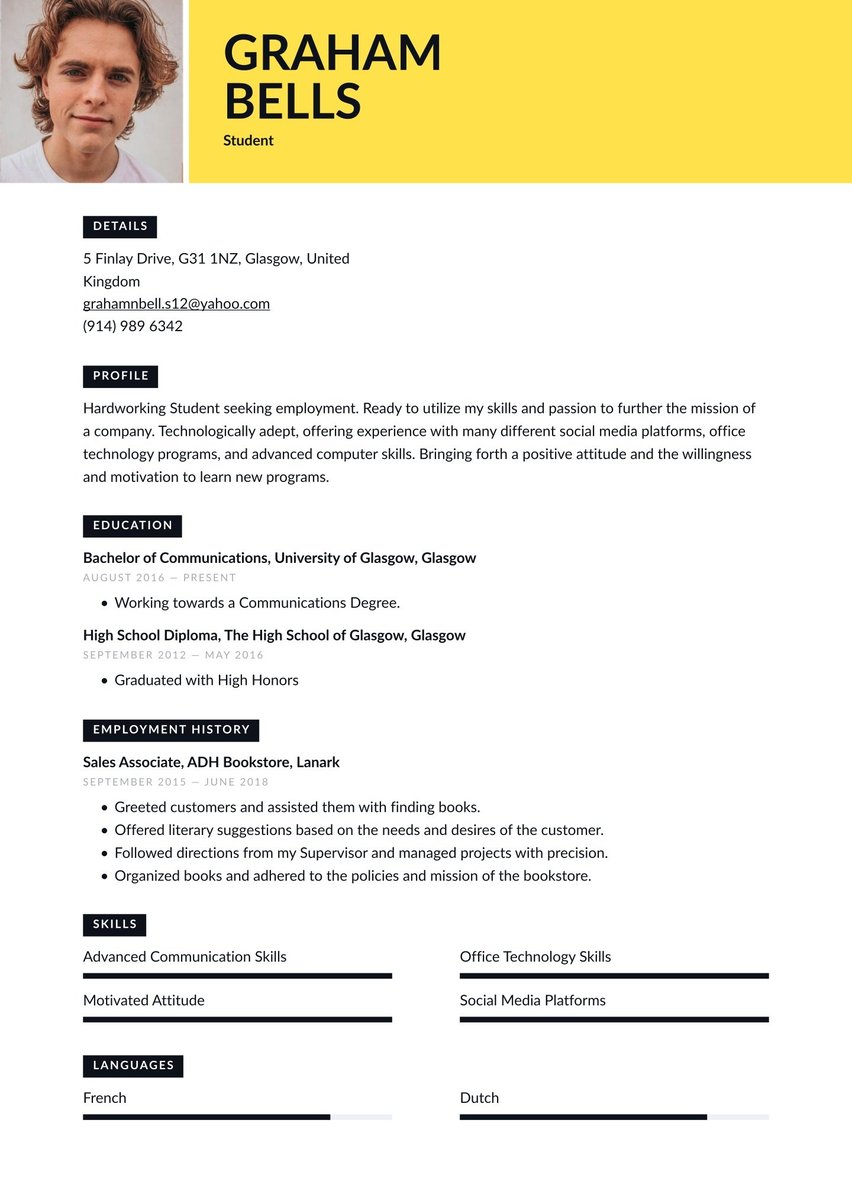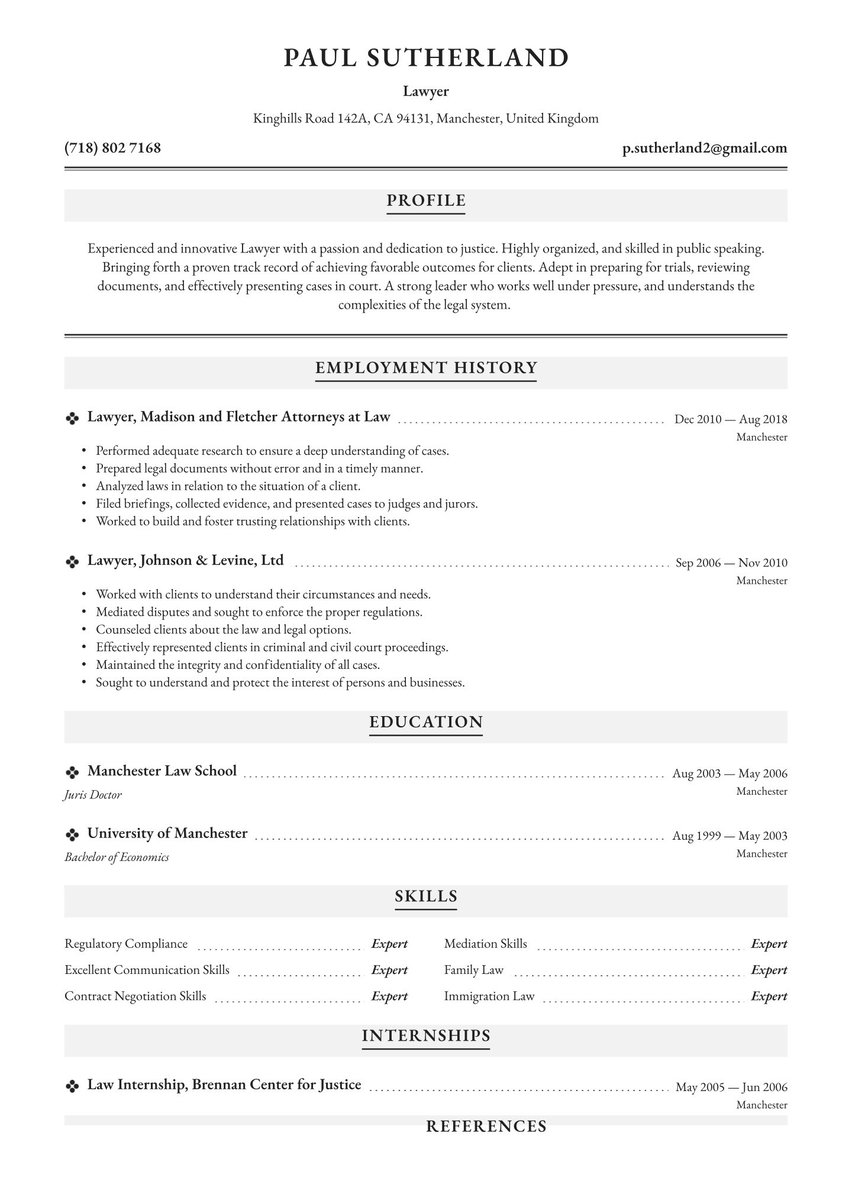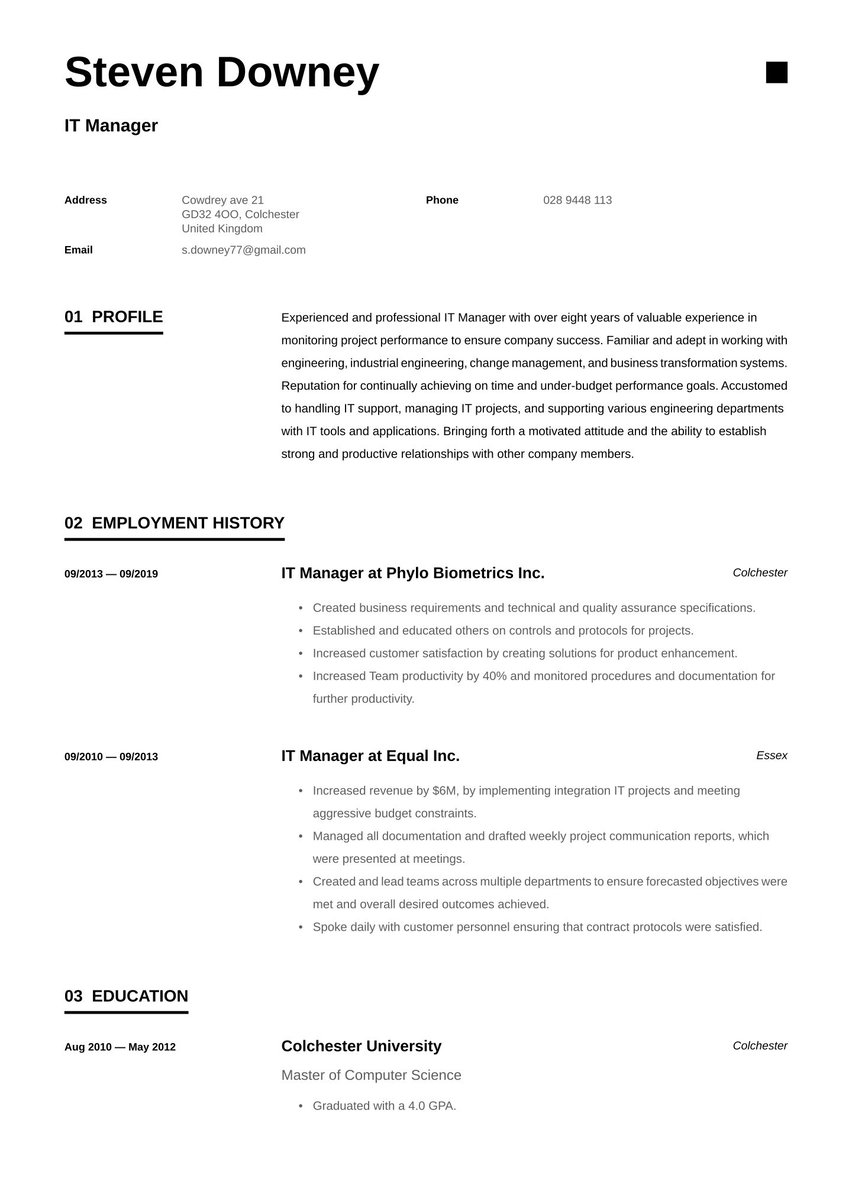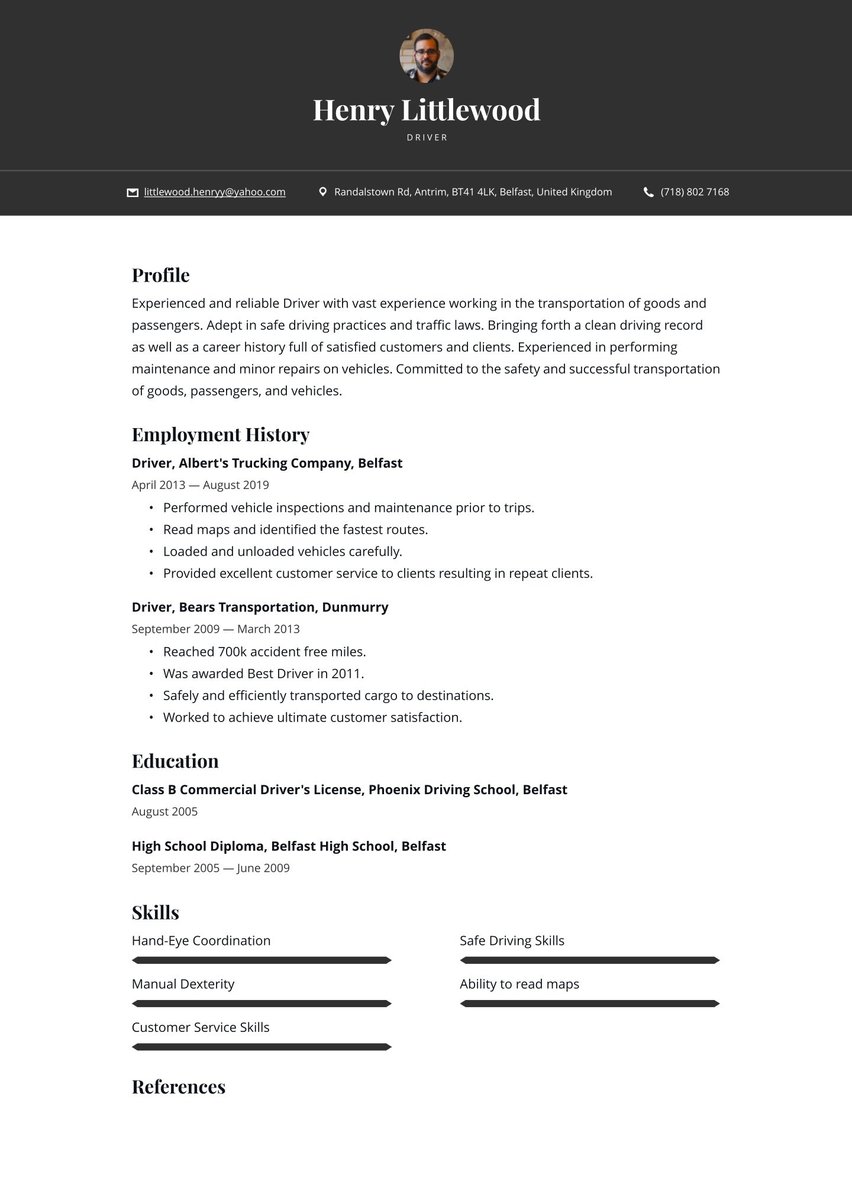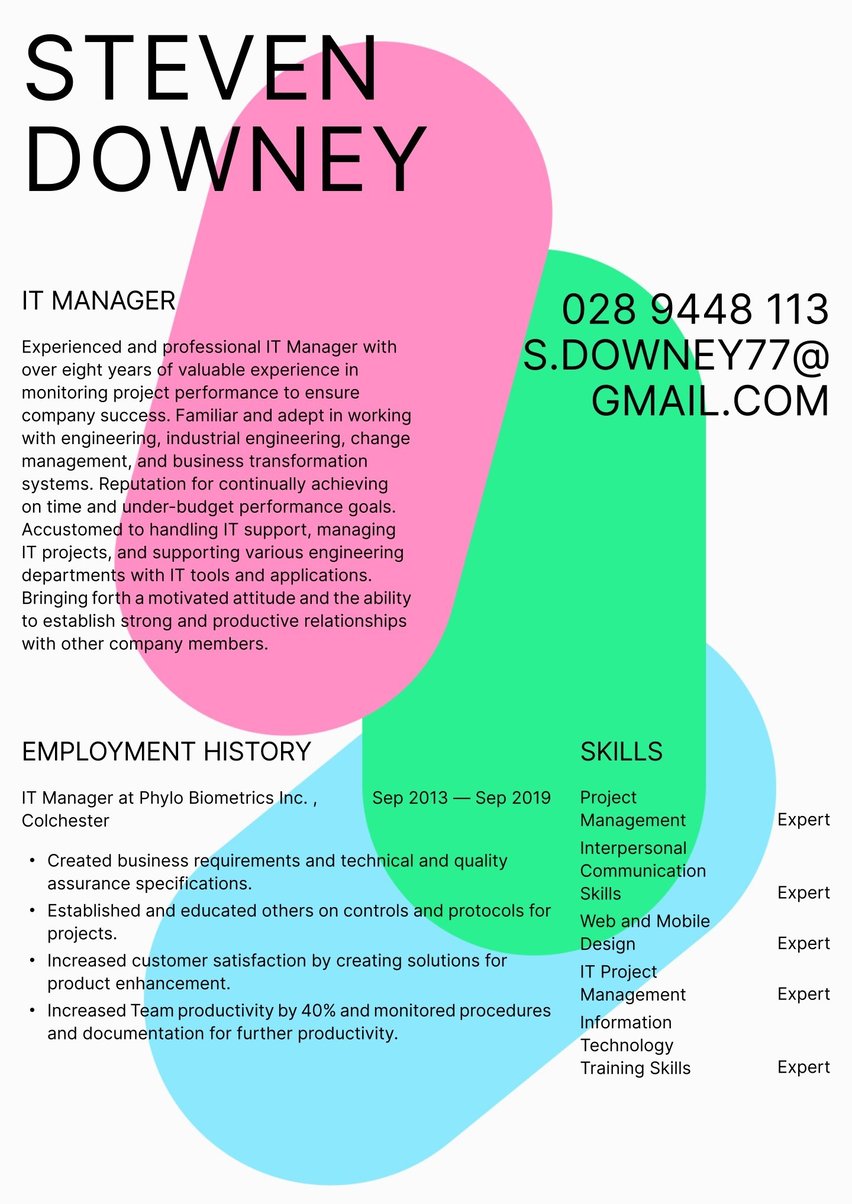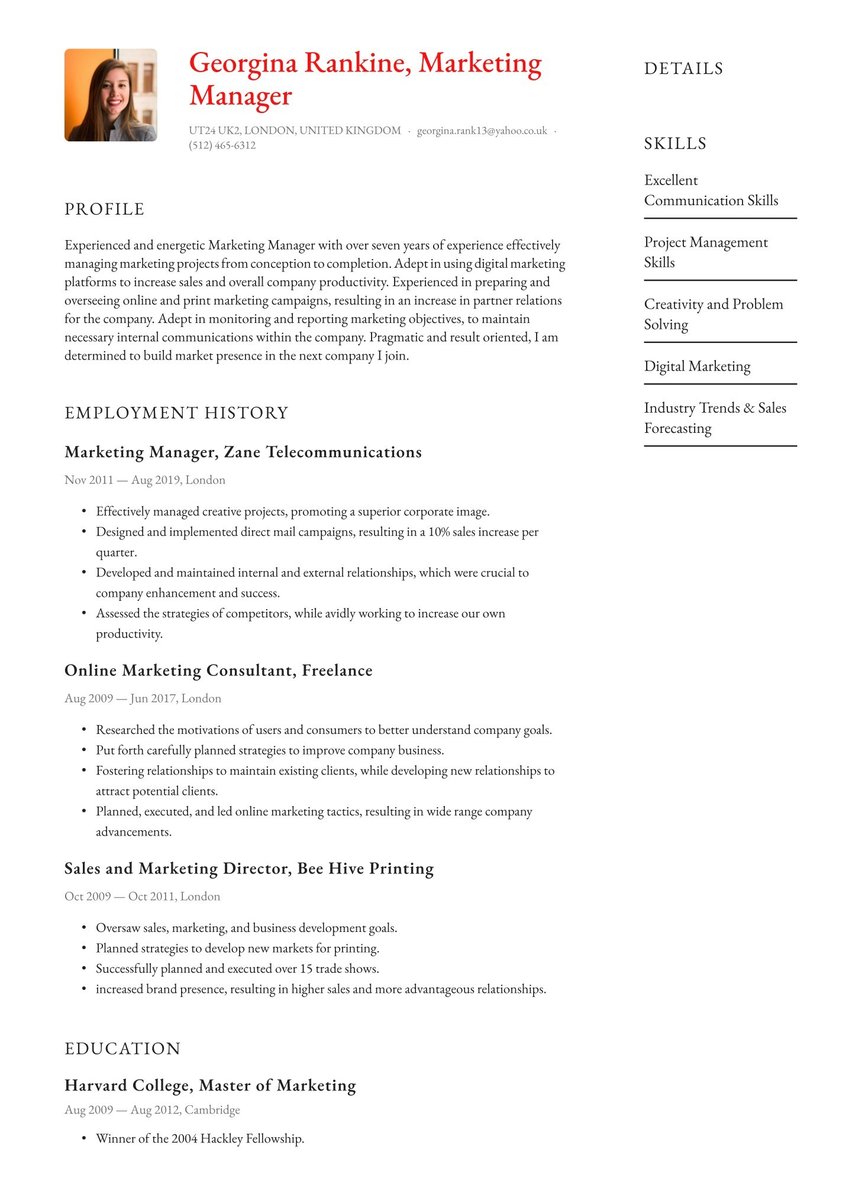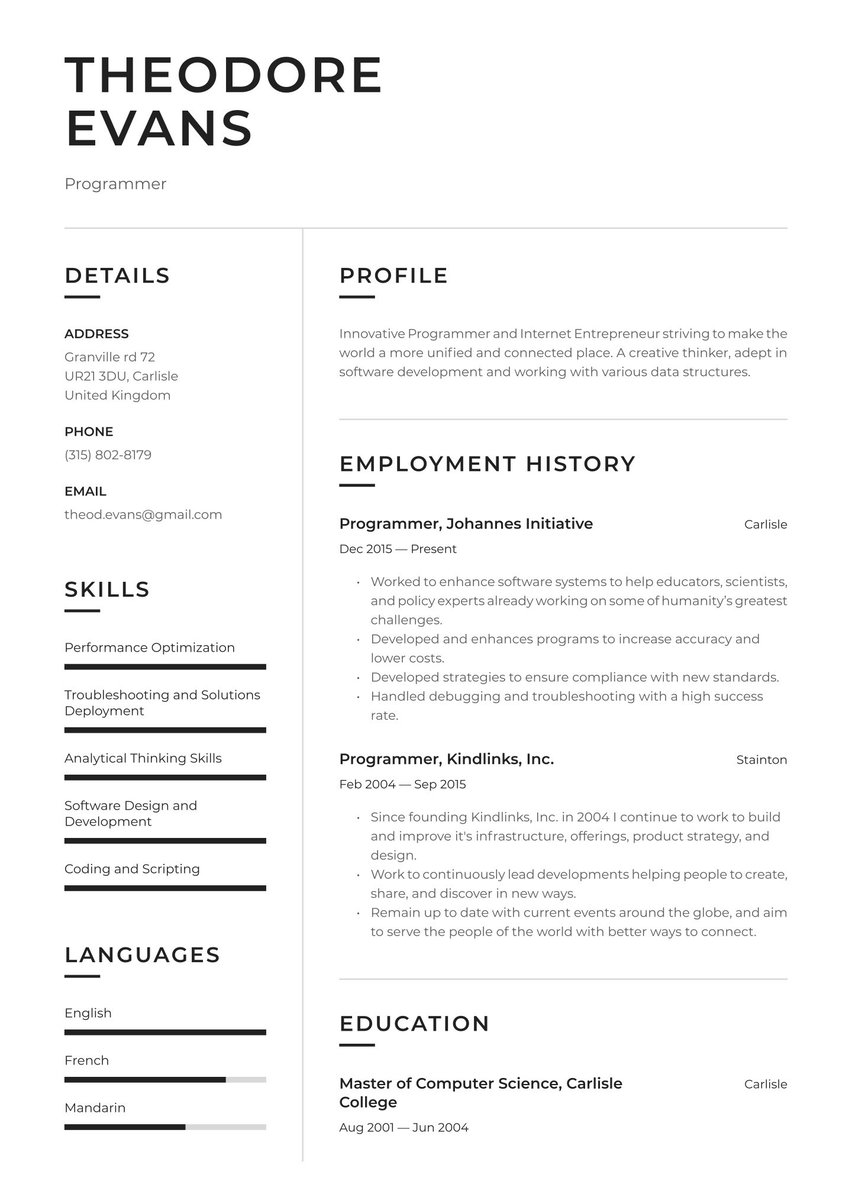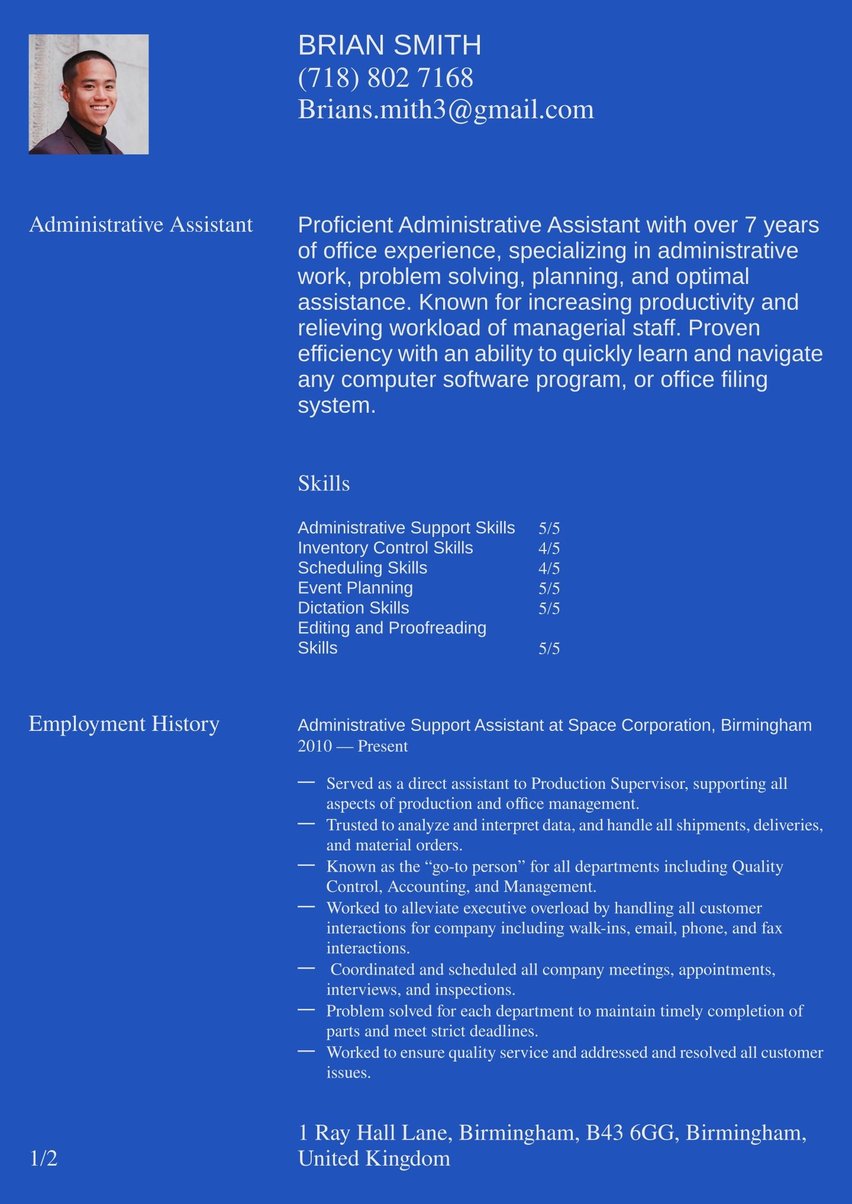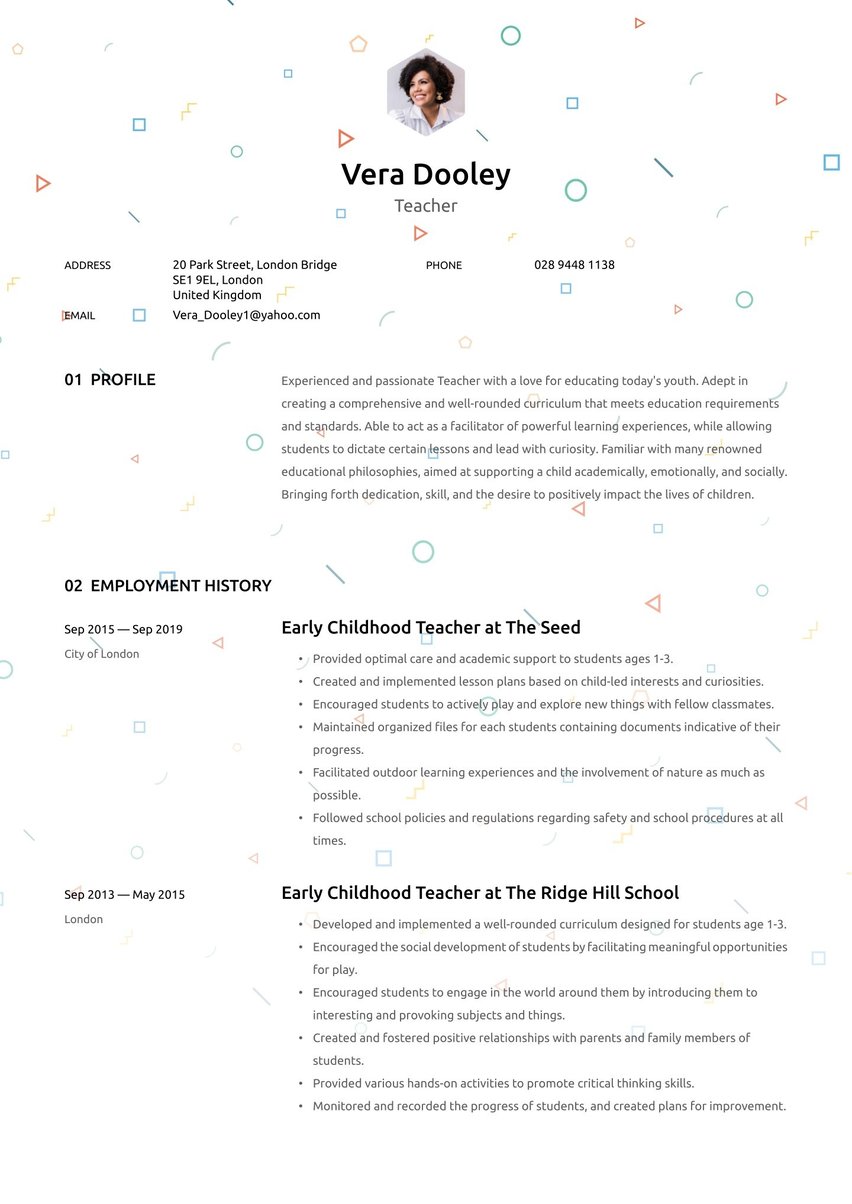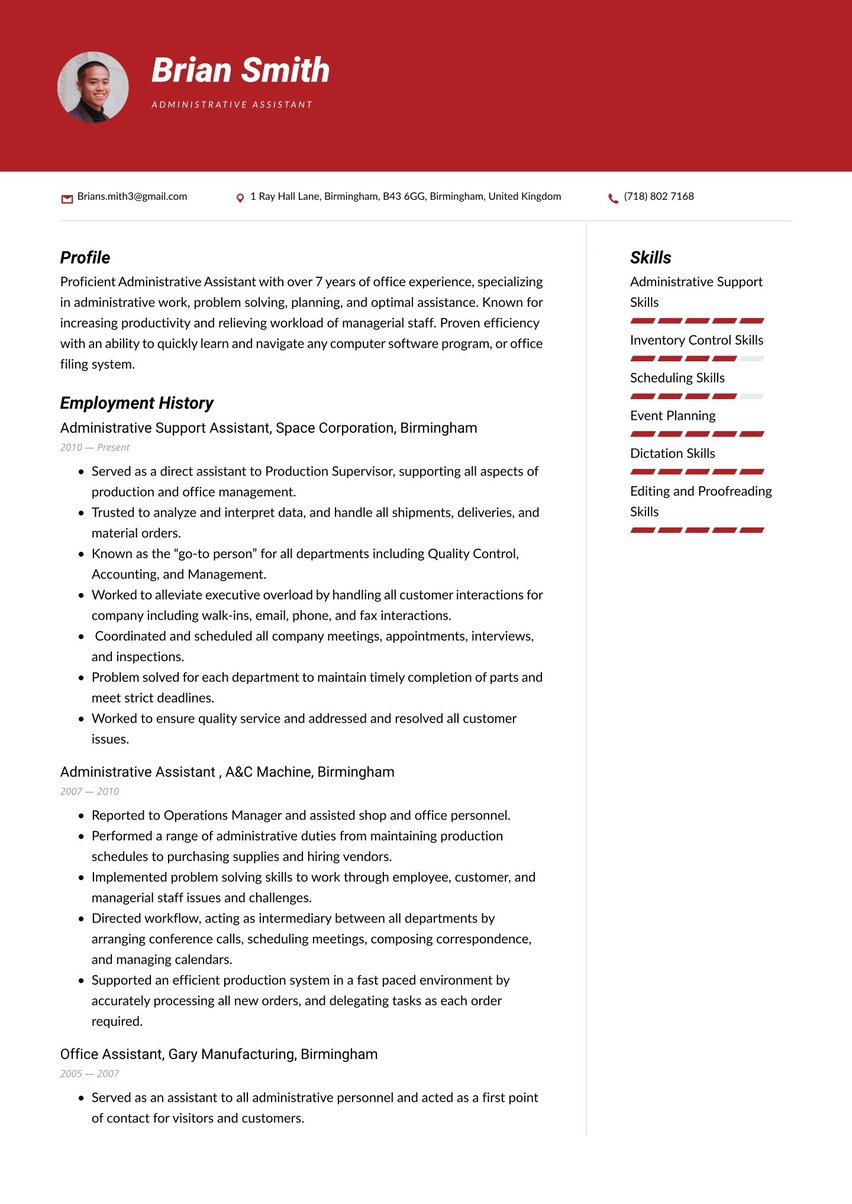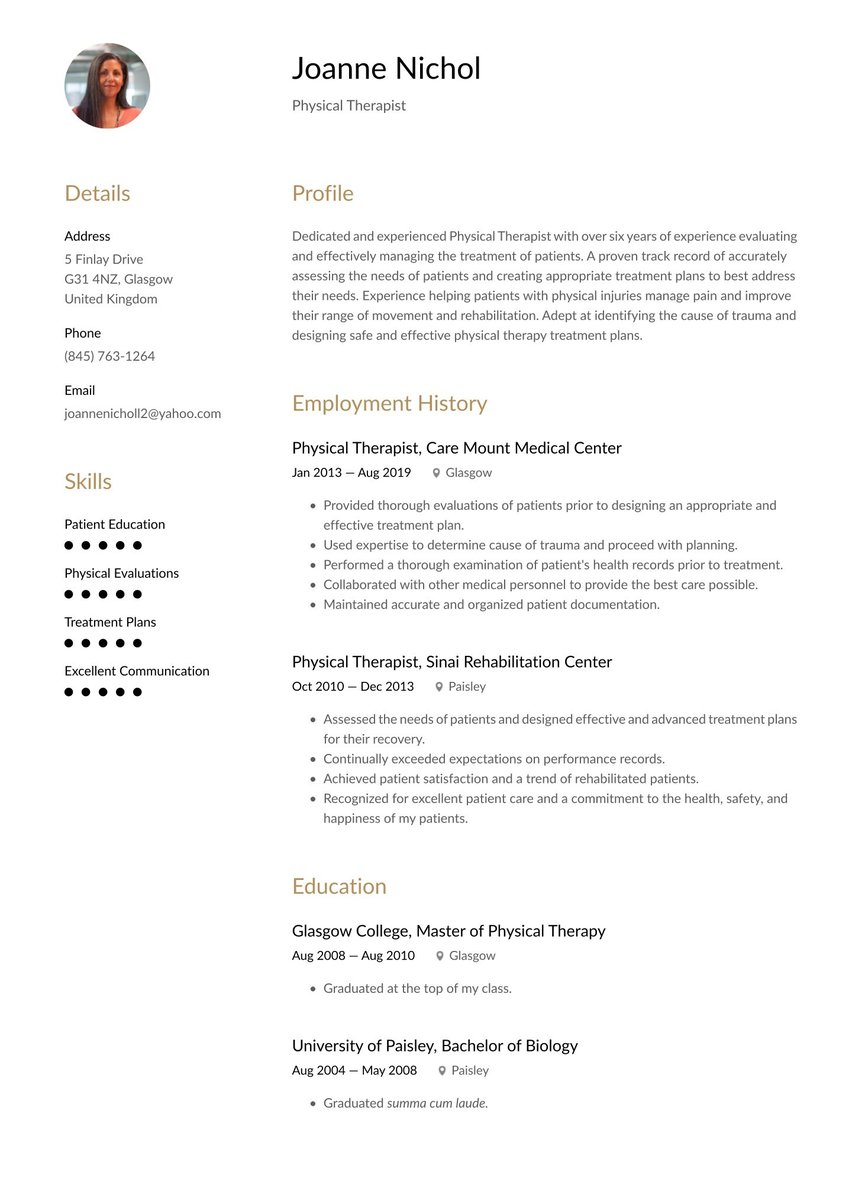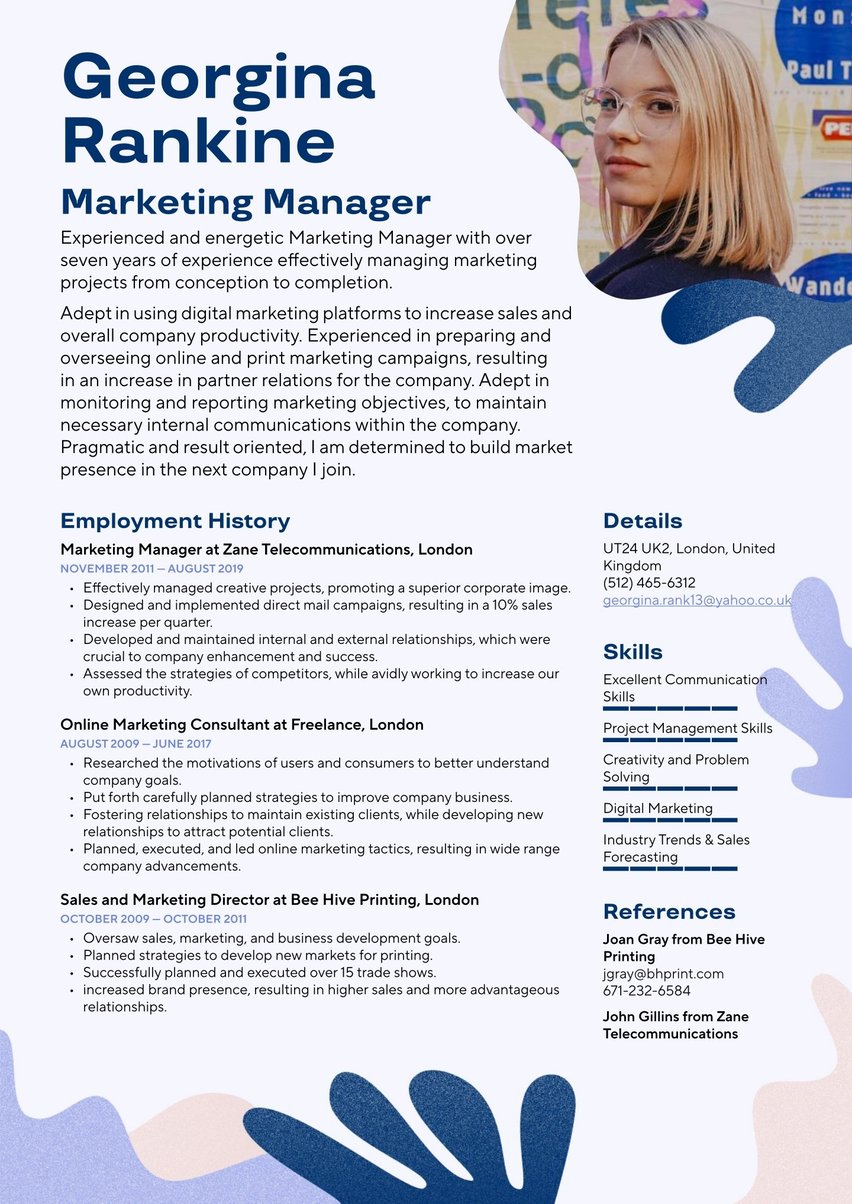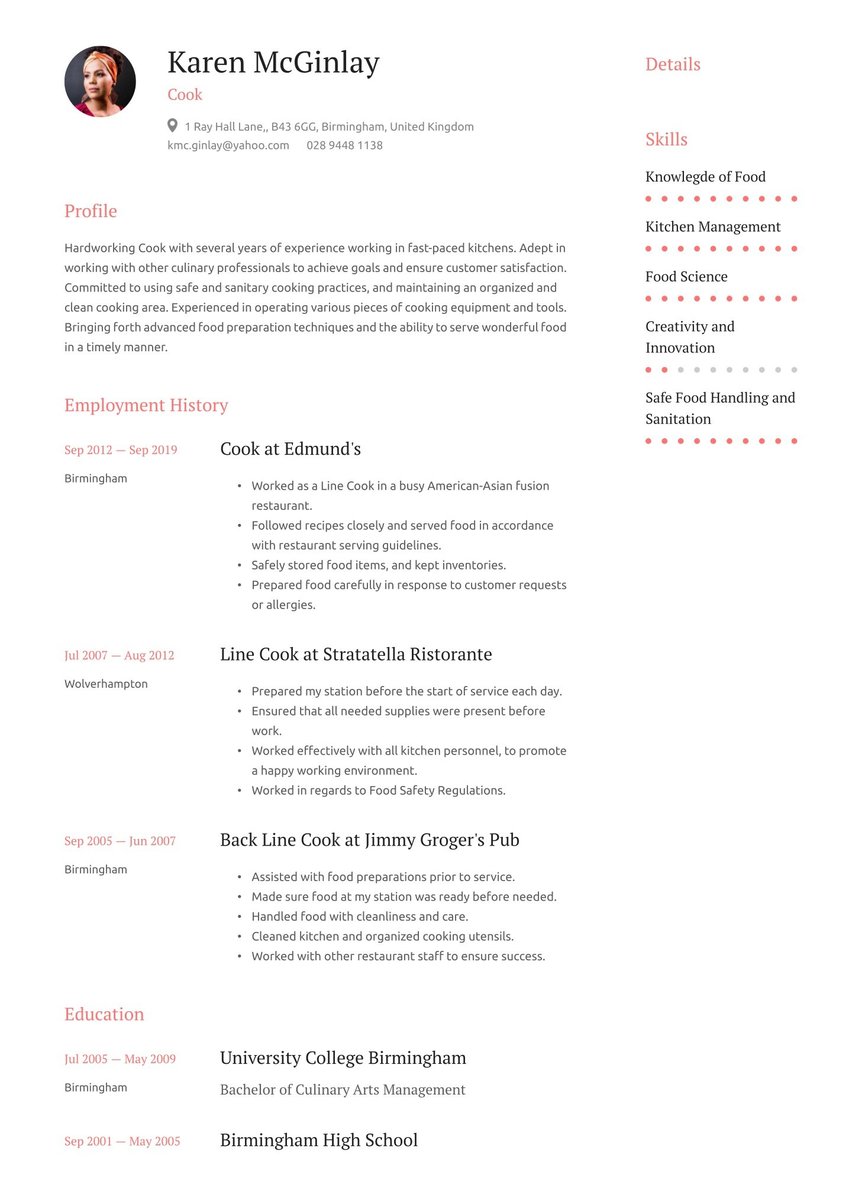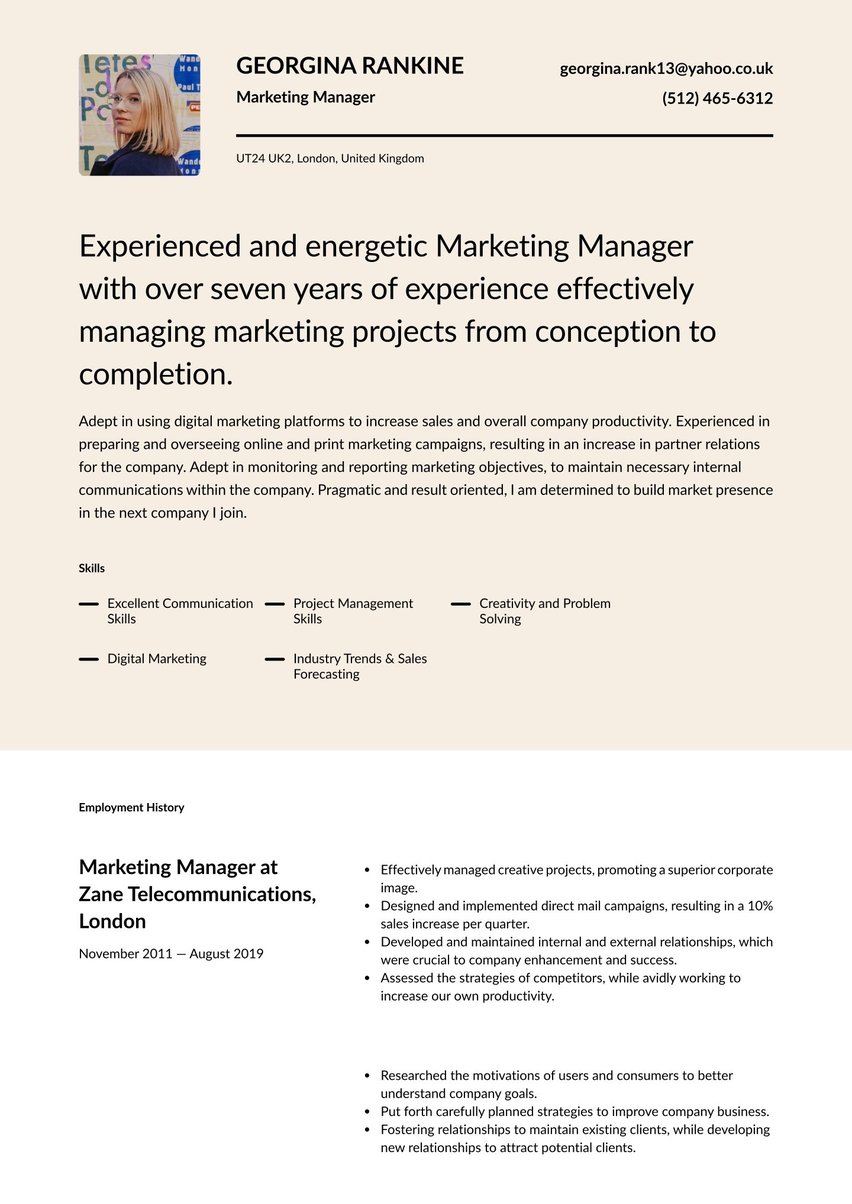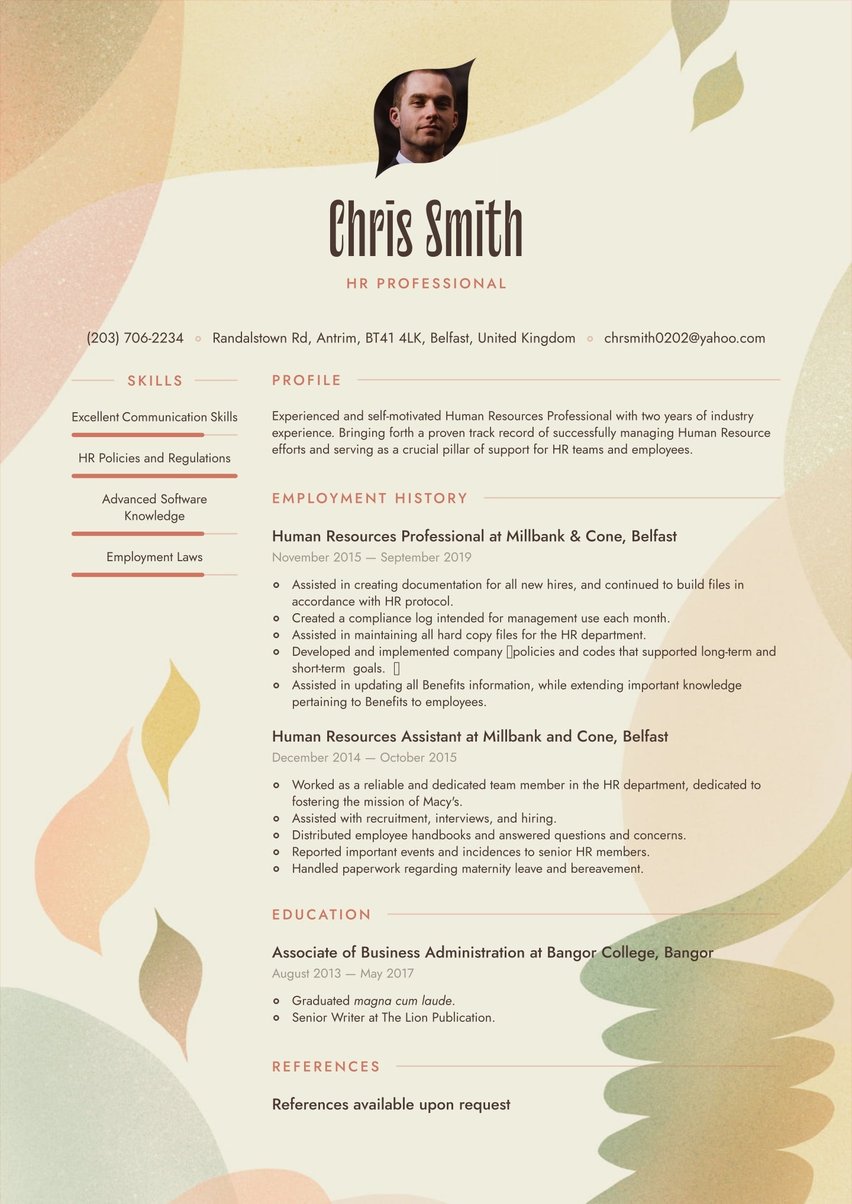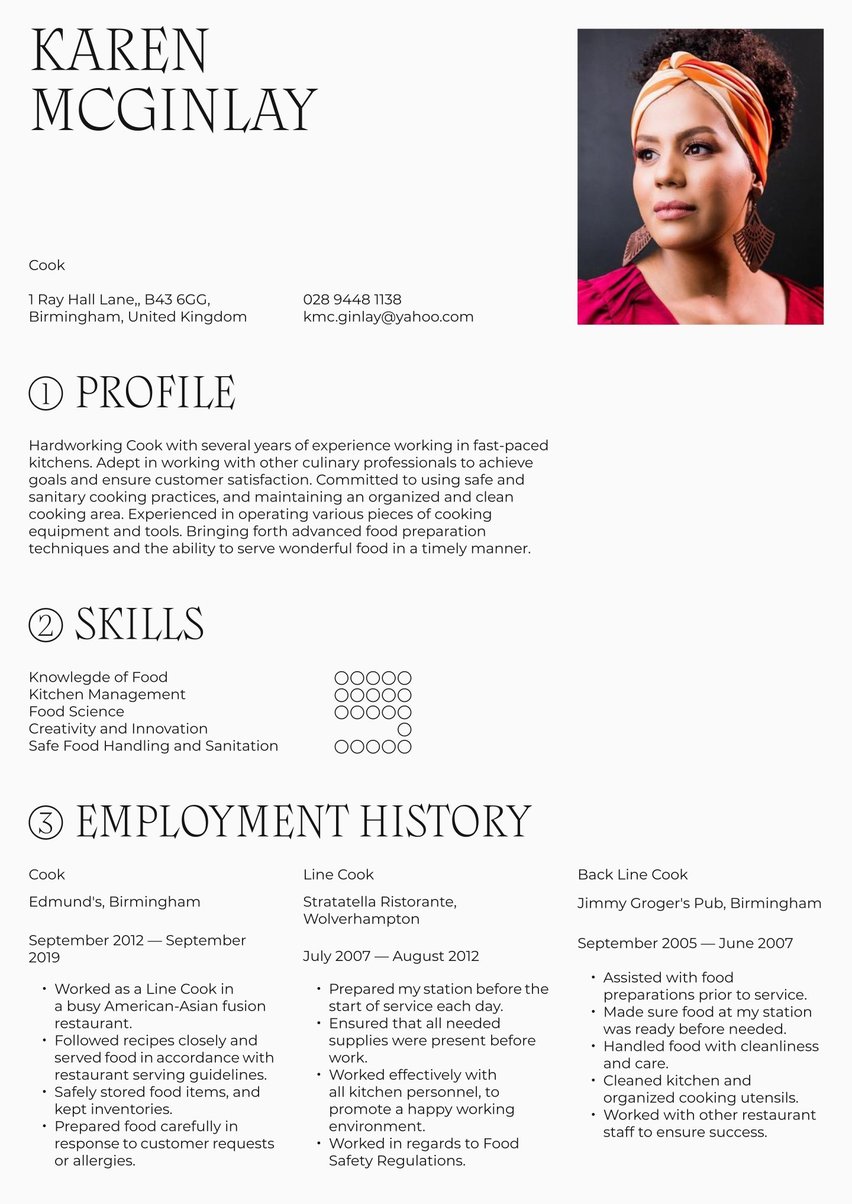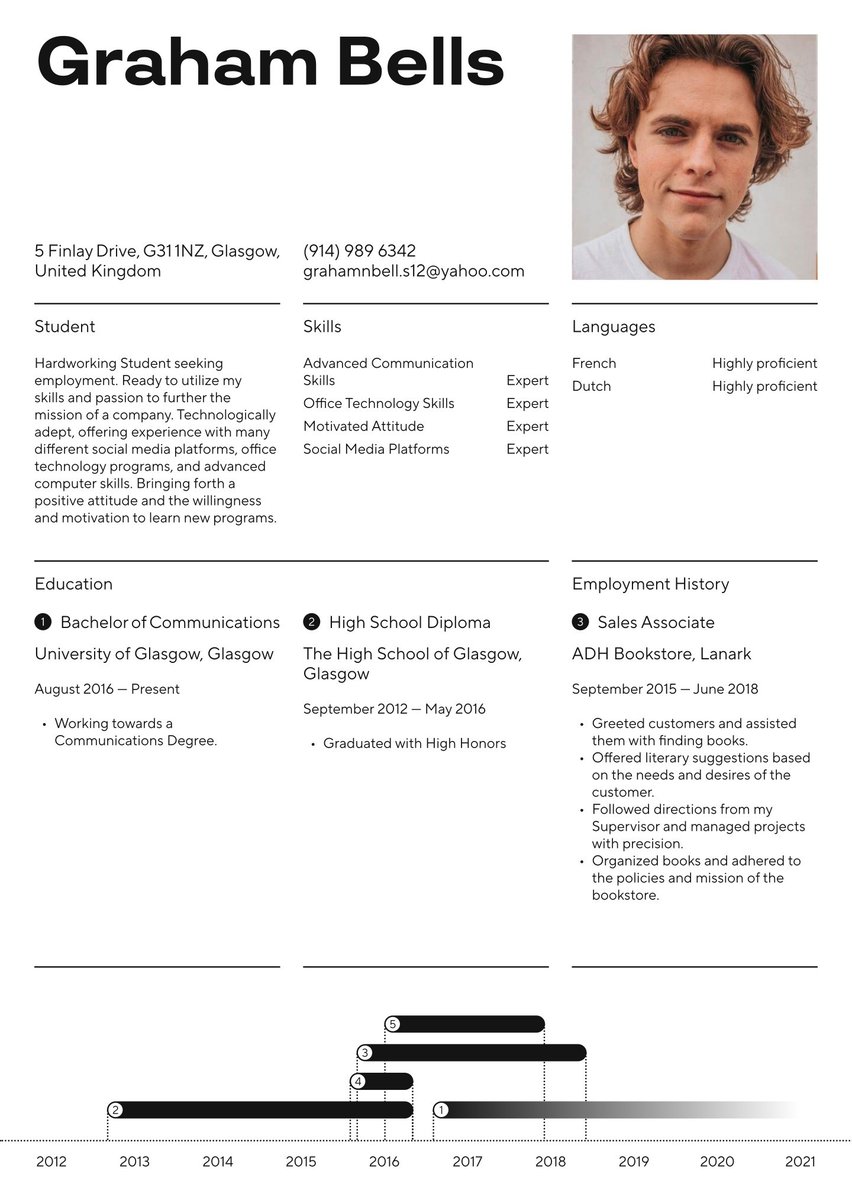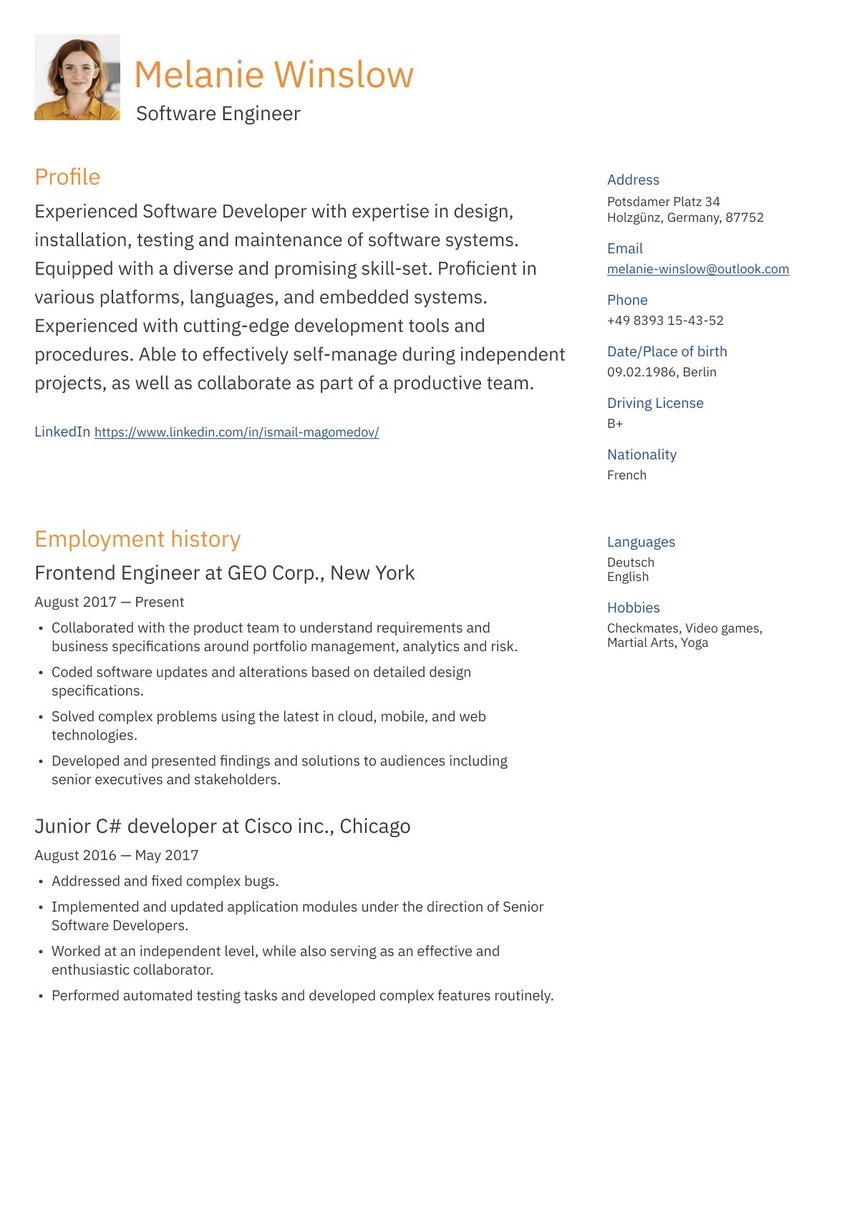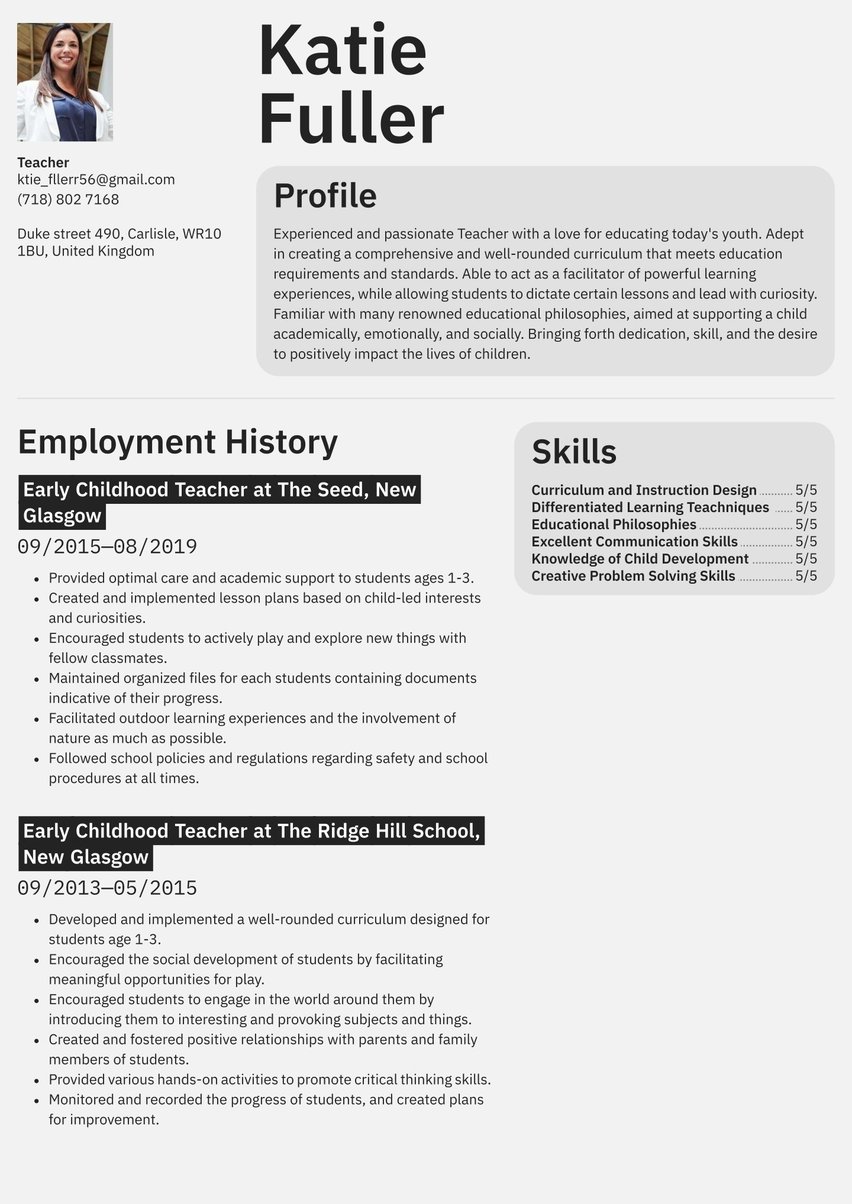Accomplished electrical engineer with nine years of experience in power systems engineering and project management. Expertise in electrical design, testing, and commissioning for large-scale infrastructure and commercial projects.
01/2020 - present, Lead Electrical Engineer, WS Atkins, Liverpool
- Spearheaded electrical and instrumentation design for Rolls Royce's £30M aerospace engine testing facility.
- Managed all aspects of project, including budgeting, resource planning, contractor coordination, and commissioning.
- Led team of four engineers and two designers for Southern Water's new £45M water pumping station.
- Ensured compliance with all relevant UK electrical standards and health and safety regulations.
06/2017 - 12/2019, Electrical Engineer, Arup, Manchester
- Designed power distribution networks, lighting systems, and fire alarms for corporate offices, laboratories, and warehouses.
- Reviewed and approved electrical drawings, specifications, bills of quantities, and cost estimates.
- Conducted site inspections, troubleshooting, and maintenance of installed electrical systems.
- Managed projects to upgrade electrical systems for several Manchester City Council buildings.
01/2017 - 01/2018, Master of Science in Electrical Power Systems, University of Manchester, Manchester
01/2013 - 01/2017, Bachelor of Engineering in Electrical and Electronic Engineering, Imperial College London, London
- Project Management
- MATLAB
- PSCAD
- Protection Systems
- Testing & Troubleshooting
- System Commissioning
Your electrical engineer’s CV is as integral to your job application as your profession is to modern society. Your CV has some serious weight to pull in the outcome of your job search.
Getting your electrical CV up to scratch should therefore be your first objective when you are setting out on a job hunt. The good news is that it’s easier than it sounds. By following a few simple steps, you’ll be focusing your energy where it’s likely to have the most impact and creating a top electrical engineer CV.
Get ready to refocus that eye for detail when you sit down to write. Whether you’ve got your eyes set on a position in the armed forces, the construction and building services industry, or a specialist engineering and consultancy firm, we’ve got you covered.
We’re just as passionate as you are in helping you to take the next step in your career with a CV that means business. So, consider these tips as the protocols for a successful electrical engineer's CV.
CV guide for an electrical engineer CV
This is our field of expertise, so why not let us take the pressure off to help you create an interview-winning CV? Our guides and CV examples span dozens of professions and our CV builder will give you the tools you need to adjust it as you see fit.
This CV guide and corresponding electrical engineer CV example will cover the following:
- How to write an electrical engineer CV
- Choosing the right CV format for an electrical engineer
- How to add your contact information
- Using summaries
- Adding your electrical engineer experience
- Listing education and relevant experience
- Picking the right CV design/layout
- What the electrical engineer job market looks like and what salary you can expect
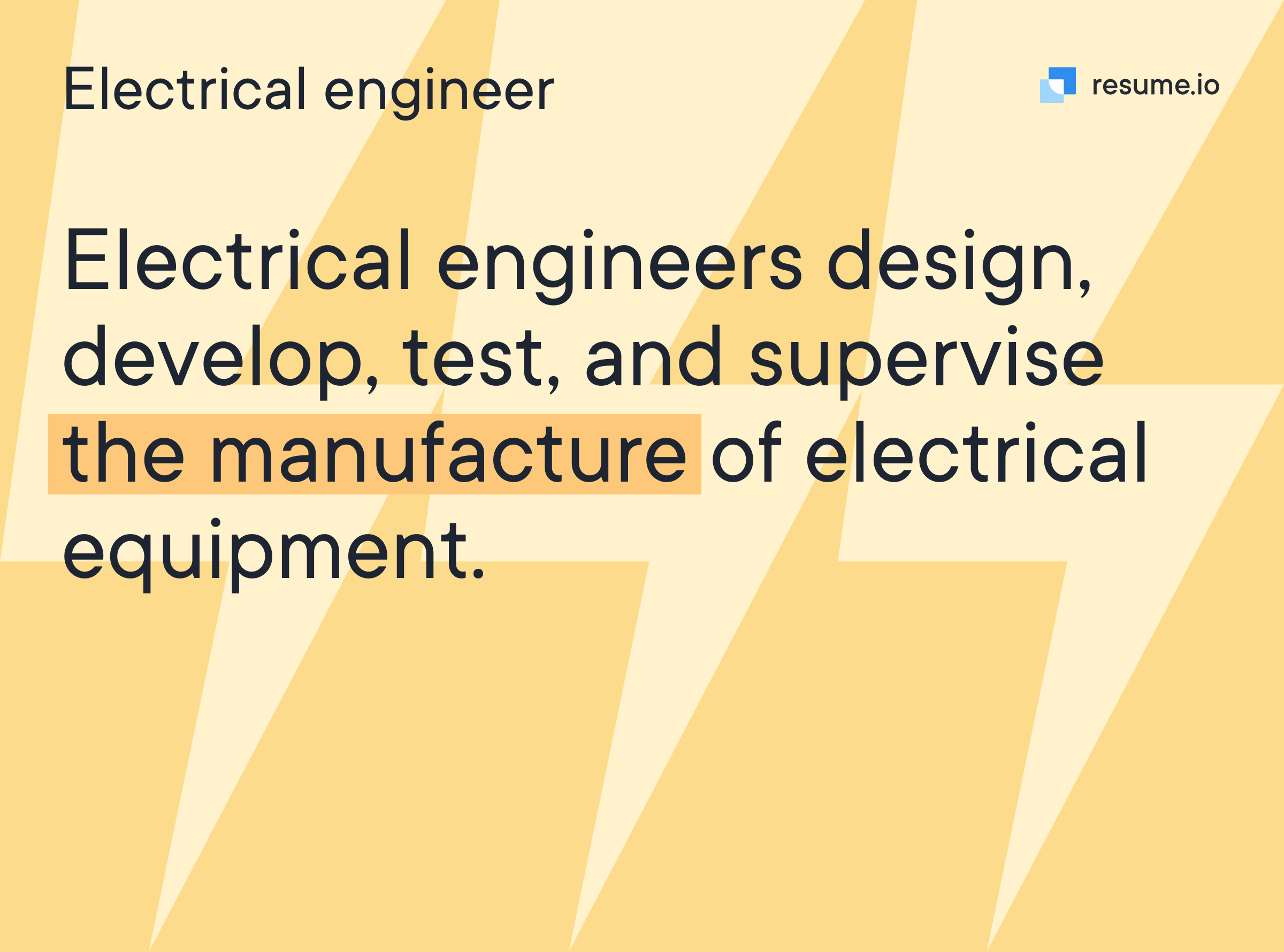
How to write an electrical engineer CV
The very first step in writing your electrical engineer CV is understanding what sections to include. Your CV should contain the following elements:
- The CV header
- The CV summary (aka profile or personal statement)
- The employment history section
- The CV skills section
- The education section
You need to answer the question that every hiring manager is going to ask with the content of your CV. Why are you the right fit for this role? That means knowing you’re up to the job in terms of your experience and skills.
However, don’t neglect the fact that you need to understand what the company you are applying to is looking for in a candidate. Present yourself with their values and mission in mind. After all, you only get one chance at a first impression, and that is your CV.
Make sure that you’re ticking the necessary boxes recruiters are going to be looking for by taking a look at our suggestions.
- Your skills. Shine a light on skills that you possess and could give you a competitive edge over other applicants. These could be anything from your ability to work under pressure and still deliver projects of a superior standard, to team leadership.
- Your language. Adapt each version of your CV so that it’s suited to the specific role and employer you’re applying to. No two companies are the same. So, what better way to show you’re the right fit than by speaking their language? Think about your tone and specific language that shows off qualities they want in a candidate.
- Your presentation. Consider what type of industry you are applying to work in. Make sure you opt for a CV template that captures that professional environment. For instance, specialist firms may appreciate a simple CV template with a polished and easy-to-navigate layout. Startups and small, progressive firms might respond to a modern CV layout.
Optimise for the ATS
Applicant Tracking Systems (ATS) helps HR departments navigate the huge influx of applications companies receive for job postings. What this means for you is an extra step to guarantee your CV makes it through the ATS scan and into the pile for potential candidates.
Before submitting your application, read the job posting thoroughly and identify keywords in the skills, experience, and responsibilities of the job description. Then cross-reference them with the language you’ve used in your own CV. Add any of these words or phrases in suitable parts of your CV’s content.
Choosing the right CV format for an electrical engineer
Your CV is a reflection of who you are as a professional. As an electrical engineer you’ll likely want to come across as being well-organised and a clear communicator. You can say all of that and more with the right CV format.
The best CV format for the majority of electrical engineers’ CVs is reverse chronological. This format favours the employment section. That is the part of your CV that provides hiring managers with a comprehensive outline of all your relevant experience, prioritising your most recent professional work.
If you’re new to the workforce or are specialised in a certain area of electrical engineering, you could consider a skills-based CV. This will give you the space to draw attention to specialised sets of skills and even your education path to the electrical engineer’s profile that you have today.
Whichever format you choose will depend on what you think may appeal to specific potential employers. That’s why we offer a vast selection of templates in our CV builder. Typically, electrical engineers should lean towards a simple CV layout that prioritises content over design.
Include your contact information
If your CV makes a good impression, the hiring manager may want to call you right away. So make sure you list your contact details at the very top of your CV.
This is the first thing someone reading your CV will see, so make sure it’s clear and free of mistakes. In engineering, unclear communication isn’t just a pesky mistake. It can be downright dangerous.The stakes on your CV are a little lower. However, communicating your attention to detail plays a part in signalling to the hiring manager that you can be trusted.
Here are some tips to present your contact information in a way that’s professional:
- Full name & title. Start by listing your first and last name. This should then be followed by the title of the role you are applying for.
- Professional email address. Use a clean format like firstname.lastname@gmail.com. Don’t use that fun but undeniably goofy email address you set up when job hunting wasn’t a priority. You know the one we’re talking about.
- Phone number. List a number where people are likely to be able to get in touch with you.
- Location. Include your city and your city alone. Your address and postcode are not necessary and shouldn’t be readily shared in the space of a CV. If applicable, you can choose to include 'Willing to relocate'.
- LinkedIn. Include your LinkedIn if you’re relatively active on it and it contains up-to-date information. In many industries, your LinkedIn profile is a great additional tool to brand yourself as the person for the job of your dreams.
Don’t include:
- Date of birth: This is not a must. Omitting this information can help to protect you from potential ageism.
- Personal details: Other sensitive information that you should not offer includes your marital status, social security number, and passport number.
Margret Walker
Electrical Engineer
0736894231
margret.walker@email.com
Marget Walker
Electrical Engineering Extraordinaire
0736894231
maggiewalkz84@email.com
Make use of a summary
Your summary, in short, is a snapshot of who you are as a professional. It presents what qualities and skills you can bring to the table and why you’re an attractive candidate that should catch a hiring manager’s eye.
With that in mind, the summary of a CV for an electrical engineer needs to be brief and concise. Hiring managers will only spend so much of their time perusing a CV. You need to make every word count. Aim for two to three sentences that communicate exactly why you would be the right person to join their team. What can you truthfully deliver that others can’t?
A CV summary isn’t just a quick run-through of what recruiters will discover further down your CV. It should highlight the overarching qualities you possess. For example, your varied employment history might make you “dynamic.”
Most importantly, your electrical engineer CV summary is ultimately your chance to sell yourself from the get-go using the vocabulary you want to be associated with. Perhaps you’re “driven”, “reliable” or “analytical”. Prioritise language that is aligned with the job description and the achievements or education that is most relevant to the job role you’re applying to.
The only way to do that successfully though, is to know exactly who you are as a professional. So, read through your CV content thoroughly and choose adjectives that do you and your experience justice. If you’re struggling to get started, then perhaps our other examples will give you some inspiration:
Check out some adaptable electrical engineer CV example summaries below:
Driven and analytically-minded Electrical Engineer graduate with work experience in a startup environment in the renewable energy sector. Proficient in drafting schematics and rendering designs in CAD. Eager to continue career development in the renewable energy sector.
Solution-oriented electrical engineer with six years’ experience at a specialist engineering and consultancy firm. Proven track record in ensuring the timely delivery of large-scale government projects, ensuring client satisfaction, and aiding with government tenders. Skilled in problem-solving and leadership.
Experienced electrical engineer with over 10 years in the healthcare tech industry delivering award-winning biomedical analysis designs. Experienced in developing designs that reduce projected energy consumption in manufacturing by 25%. Proficient in multiple simulation tools including MATLAB. Fluent in Spanish and Dutch.
Outline your electrical engineer work experience: charge up your career journey
Utilise the reverse chronological format to present your work employment in a format that hiring managers know and expect. Add your current role at the top of the section and then work your way backwards.
Bear in mind that if you have extensive experience, you should list only your most recent electrical engineering escapades.
Include the following information when listing each of your previous roles:
- Your job title
- The name of the company you worked for
- Your dates of employment
- The location of the position
Each individual employer and role heading should be expanded upon with brief bullet points. Each bullet point will correspond to an achievement, highlight or responsibility during your time there.
Remember that what you choose to include in these summaries should always be selected with the job you’re applying to in mind. You don’t need to include an exhaustive list of your previous role’s daily duties. Highlight the ones that tell the hiring manager something about why you’d be good in the role you’re applying to.
Quantify your achievements
Cold, hard numbers. Now that’s a language that any hiring manager can speak. Here are some examples of results that you can attach a figure to:
- Did you increase your team’s output by a certain percentage?
- Did your design help to reduce the product’s carbon emissions?
- Or perhaps you saved the team a lot of money on their annual budget?
Above all, try to give the hiring manager a clear picture of how you can deliver excellent value to a team of electrical engineers. That means focusing on your achievements above all else. What did you accomplish when carrying out your duties?
You want to let the hiring manager know how significant your contributions were in your previous jobs. For example, perhaps your management of a multi-disciplinary team was why you were able to deliver a project ahead of schedule.
You’re essentially answering questions that may be posed to you in an interview before you’ve even stepped foot in the company. This can even help you if you do make it to an interview. Once you make it into that office you’ll have a clear idea of what the hiring manager is looking for and all that’s left to do is impress with your interpersonal skills.
Lead Electrical Engineer at WS Atkins, Liverpool
January 2020 - Present
- Spearheaded electrical and instrumentation design for Rolls Royce's £30M aerospace engine testing facility.
- Managed all aspects of project, including budgeting, resource planning, contractor coordination, and commissioning.
- Led team of four engineers and two designers for Southern Water's new £45M water pumping station.
- Ensured compliance with all relevant UK electrical standards and health and safety regulations.
Electrical Engineer at Arup, Manchester
June 2017 - December 2019
- Designed power distribution networks, lighting systems, and fire alarms for corporate offices, laboratories, and warehouses.
- Reviewed and approved electrical drawings, specifications, bills of quantities, and cost estimates.
- Conducted site inspections, troubleshooting, and maintenance of installed electrical systems.
- Managed projects to upgrade electrical systems for several Manchester City Council buildings.
Include the relevant key skills that make you a great electrical engineer
With so many skills required for a successful electrical engineer, your dedicated CV skills section is an organised way of making sure these qualities aren’t overlooked. As you write it, make sure it’s well balanced with both hard skills and soft skills.
You will tweak this list on each version of your CV depending on the role you’re after. Your main goal is to ensure you meet the desired candidate qualities stated in the job posting. This can be easily done by identifying the keywords used. Alternatively, you can include some of the pre-written key skills in the CV builder. Just set the proficiency ranges and choose the ones that are the most applicable to your role.
The most important technical skills should also be mentioned in your CV summary or your previous employment section’s bullet points. So, remember to amp up your soft skills throughout your CV, too. Here are some ideas on how to do this in your skills section and beyond:
- Leadership skills. Talking about instances where you’ve brought together multidisciplinary teams. Mention any project successes aided by your contribution
- Critical thinking skills. For instance, consider how you have been able to interpret and adapt project briefs.
- Adaptability. Look for examples that illustrate your creative problem-solving in face of unexpected obstacles. The hiring manager will want to know they’re hiring someone who can handle them when they inevitably pop up during client projects.
Your circuit board to success
No two electrical engineers paths are the same. Pursuing a career as an electrical engineer usually involves at least one engineering or science-based degree.
Your background could be in electromechanical engineering, building services engineering, applied physics, aeronautical engineering, or even mechatronics.
Each path will equip you with a different subset of skills. Lean into the ones that are most useful for this job application. All the better if they’re unique to your journey and can help you to stand out.
Writer’s block? Check out our skills section example content below.
Key Skills and Proficiencies
Detail your education & relevant electrical engineer certifications
To pursue electrical engineering as a profession, some kind of formal education will be necessary. That could take the form of an undergraduate degree in electrical engineering or an alternative route, such as an apprenticeship.
Like in the section detailing your professional history, make sure you list your entries in reverse chronological order. Each qualification you’ve gained should correspond to a subheading. You'll need to include the following details for each:
- Official title. The name of your qualification
- Academic institution. The institution where you earned the qualification
- Dates of attendance. The start and end dates of your qualification.
- The location. The city where this was located.
If you’ve undertaken any other training to further your expertise or specialise in some way as an electrical engineer, this is the section to shine a light on that. Recruiters will appreciate candidates who demonstrate an interest in continual professional growth and improvement.
Consider some of the following alternative examples of qualifications and accreditations that will better brand you as a qualified electrical engineer by including them on your CV:
- Electrical and electronic engineering NVQ diploma
- BTEC in engineering
- An Institute of Engineering and Technology-accredited apprenticeship
- Registration as a chartered engineer (CEng)
If you have numerous accreditations or awards you can add them as a separate section on your CV.
Master of Science in Electrical Power Systems, University of Manchester, Manchester
2017 - 2018
Bachelor of Engineering in Electrical and Electronic Engineering, Imperial College London, London
2013 - 2017
Pick the right CV layout and design for an electrical engineer
Picking a design for your CV might feel a little outside of your comfort zone. But creating a clearly-presented CV is an extension of the visual communication skills you need in your job.
Above all your CV needs to be reader-friendly. After all, before hiring managers meet you in person, their perception of you will be based on how you’ve chosen to present yourself on the page.
Unless your goal is to work in a quirky start-up, the CV of an electrical engineer should prioritise functionality over being eye-catching. So dress your CV down and keep it professional and simple.
Don’t confuse simple with boring, however. There are still classic styles that can be aesthetically pleasing and minimalistic. A simple colour palette could brighten up a hiring manager’s day after they’ve worked their way through a stack of monochrome CVs.
Remember to deliver your CV to the hiring manager in a PDF format. Not only will this mean that it’s ATS-friendly, but it will avoid layout issues affecting its readability.
Then again, maybe graphic design isn’t your strong suit. With our vast selection of tried and tested, free CV templates, CV design doesn’t have to be your forte — all you have to do is choose your favourite!
Electrical engineer text-only CV example
Profile
Accomplished electrical engineer with nine years of experience in power systems engineering and project management. Expertise in electrical design, testing, and commissioning for large-scale infrastructure and commercial projects.
Employment history
Lead Electrical Engineer at WS Atkins, Liverpool
January 2020 - Present
- Spearheaded electrical and instrumentation design for Rolls Royce's £30M aerospace engine testing facility.
- Managed all aspects of project, including budgeting, resource planning, contractor coordination, and commissioning.
- Led team of four engineers and two designers for Southern Water's new £45M water pumping station.
- Ensured compliance with all relevant UK electrical standards and health and safety regulations.
Electrical Engineer at Arup, Manchester
June 2017 - December 2019
- Designed power distribution networks, lighting systems, and fire alarms for corporate offices, laboratories, and warehouses.
- Reviewed and approved electrical drawings, specifications, bills of quantities, and cost estimates.
- Conducted site inspections, troubleshooting, and maintenance of installed electrical systems.
- Managed projects to upgrade electrical systems for several Manchester City Council buildings.
Education
Master of Science in Electrical Power Systems, University of Manchester, Manchester
2017 - 2018
Bachelor of Engineering in Electrical and Electronic Engineering, Imperial College London, London
2013 - 2017
Skills
- Project Management
- MATLAB
- PSCAD
- Protection Systems
- Testing & Troubleshooting
- System Commissioning
Electrical engineer job market and outlook
Electrical equipment is used in numerous sectors. That’s good news for you because it means that electrical engineering opportunities are continuing to expand. Depending on your level of experience, you may find that it opens a great deal of flexibility for your career as an electrical engineer.
In fact, if you play your cards right you might even get your pick of your preferred industry!
According to the Women’s Engineering Society, the engineering workforce expanded from 5.3 million in 2010 to 5.6 million in 2021.
Of this workforce, women currently make up 16.5% of all engineers, compared to 10.5% reported in 2010. This is a percentage WES is trying to help increase through its events, research, and resources.
What type of salary you can expect in electrical engineering
The National Careers Service reports that electrical engineers can expect to earn anywhere from £20,000 to £60,000 a year. This range reflects the fact that salaries are usually decided based on experience. Like most professions the more experienced you are, the higher your annual earnings are likely to be.
Key takeaways for building an electrical engineering CV
- Electrical engineers cover a wide range of sectors. Adjust your CV accordingly so that it’s always tailored to each individual job application.
- Your daily tasks will be varied, so make sure there’s enough experience in your CV to show off your various competencies.
- Don’t be shy about going to town with your skills list. Not every job is as dynamic as yours and you invested time and energy into acquiring those skills.
- There are different educational paths to the coveted role of electrical engineer. Make sure it’s clear to the hiring manager just how much time you invested through your education section.

